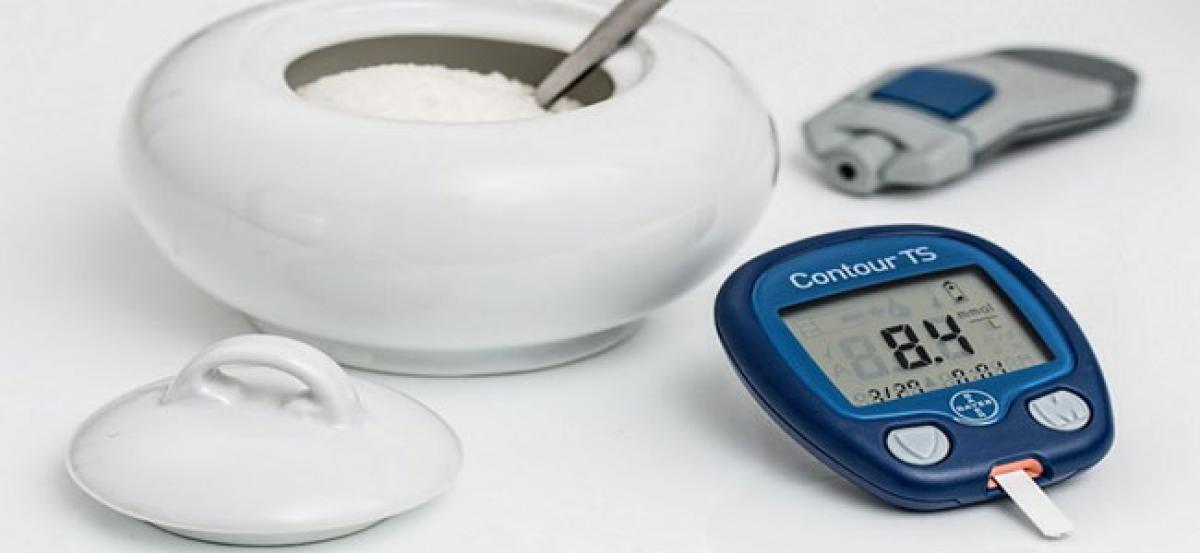Live
- Average grievance redressal time reduced to 13 days
- Cong leader dares Kishan Reddy to bathe in and drink Musi water
- Bonanza for Warangal as govt rains funds ahead of CM’s visit
- No confidence in Biren Singh govt, NPP supremo says after a day after withdrawing support
- Women of steel: Promoting environment conservation, come what may
- APSSDC signs tripartite MoU to upgrade skills of AP youth
- ‘AAP govt settling Rohingyas in Delhi, giving voter cards’
- Students advised to pursue excellence through learning
- Cold wave hits AP, Telangana: temperatures plunge to single digits
- AAP replaces Gahlot with another Jat face in Cabinet
Just In

Turns out, improving blood sugar control in type 2 diabetes patients is as easy as using a telehealth program.
Washington D.C: Turns out, improving blood sugar control in type 2 diabetes patients is as easy as using a telehealth program.
A study conducted in veterans found that the program for diabetes self-management not only shortens the wait to talk to a physician specialist versus an in-person visit but also results in patients with type 2 diabetes having comparable improvements in blood glucose (sugar) control to patients receiving traditional care finds.
The "telediabetes" program at the Veterans Affairs (VA) Pittsburgh Healthcare System, where the study took place, merges an electronic consultation, or e-consult, from an endocrinologist specializing in diabetes with ongoing telephone-based care, said senior investigator Archana Bandi.
Unlike a typical e-consult meant to be a one-time recommendation, this program provides team-based care with follow-up, she noted.
"Without incurring any travel, our electronic consultation program provides equally efficacious diabetes care with significantly expedited access," Bandi said. "This type of e-consult is a viable alternative to traditional face-to-face care delivery, especially in remote areas with a shortage of endocrinologists."
For the e-consult, Bandi said an endocrine provider reviews the patient's medical record and conducts a 20- to 30-minute phone interview with the patient and family, before electronically sending the referring physician recommendations to share with the patient on lowering his or her blood sugar levels.
A nurse on the diabetes care team monitors the patient's progress via phone calls over the next three to six months. The primary care provider obtains all needed laboratory tests and makes recommended changes in therapeutic regimen. Patients are also offered ancillary services such as nutrition counselling and diabetes education services close to home.
In this study, Bandi and her research team compared results for 442 patients who participated in the e-consult program and another 407 patients who had a traditional face-to-face visit and follow-up care. All patients were veterans with type 2 diabetes who were referred from remote VA facilities between 2010 and 2015 for a consultation about improving their blood sugar control.
"Given the obesity and diabetes epidemic along with the current shortage of endocrinologists in the U.S., the care delivery for patients with diabetes needs a complete change in its paradigm," she said. "An example is our innovative model of care delivery that brings quality care to the patient's doorstep in an expedient fashion."
The study was presented at ENDO 2018, the Endocrine Society's 100th annual meeting in Chicago, Ill.

© 2024 Hyderabad Media House Limited/The Hans India. All rights reserved. Powered by hocalwire.com







